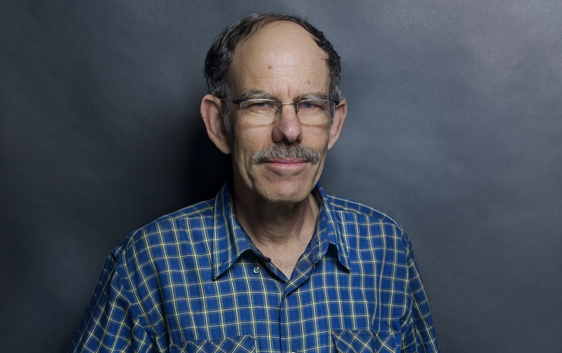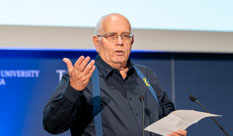More:
News & Stories
A prestigious international grant to Prof. Amnon Fruchtman from the Faculty of Sciences
Prof. Amnon Fruchtman from the Department of Physics in the Faculty of Sciences received a NSF-BSF grant together with colleagues from the Weizmann Institute of Science and Princeton University in the USA.

The grant will fund joint research of plasma compression by magnetic pressure, a subject in which researchers from the three institutions have been collaborating on for about a decade. The NSF-BSF grant program is jointly funded by the US National Science Foundation (NSF) and the US-Israel Binational Science Foundation (BSF).
The current study deals with the feasibility of nuclear fusion, which if achieved, would become an almost infinite source of energy for humanity.
" A huge amount of energy is released in two types of nuclear processes: in nuclear fission, energy is released when a uranium nucleus splits into lighter nuclei, while in nuclear fusion, energy is released when two hydrogen nuclei fuse into a heavier helium nucleus," explains Prof. Fruchtman. "Unlike uranium, hydrogen is available in almost unlimited quantities, which would make nuclear fusion, if achieved, the solution to humanity's energy problem. However, while nuclear fission is controlled in nuclear reactors, there is an enormous scientific and technological difficulty in carrying out nuclear fusion in a controlled manner.
You have to reach enormous pressures of the hydrogen gas that turns into a plasma to reach the conditions suitable for fusion, which is called thermonuclear fusion. These conditions exist in the sun and indeed the thermonuclear fusion that takes place in the center of the sun is the source of its energy."
On Earth for about seventy years, tremendous international efforts have been made to achieve controlled thermonuclear fusion. One of the methods by which scientists try to achieve thermonuclear fusion is to compress a cylinder of plasma by magnetic pressure created by a large, pulsed current in a configuration called a Z pinch. Professor Yitzhak Maron from the Weizmann Institute, performs spectroscopic measurements (spectroscopy is a scientific field that studies the interaction between matter and electromagnetic radiation) of the plasma in the Z pinch, which he and his team built.
Prof. Nathaniel Fisch from Princeton University, USA, and Prof. Fruchtman from HIT, theoretically investigate the compression mechanism. In this combination of experiment and theory, the three research groups have discovered in recent years important processes that occur during compression; unexpected distribution of the pulsed current, and the formation of rotational motion of the plasma cylinder.
"Understanding complex processes, those that have been recently discovered and others that will be studied with the help of the current grant, is critical to progress towards the long-awaited thermo-nuclear fusion," Prof. Fruchtman concludes.
About five years ago Prof. Fruchtman won a similar grant for other aspects of this research.
- News & Events
New Collaboration with Sheba Medical Center will qualify nurses to work in a digital environment.
Collaboration between HIT Holon Institute of Technology, the teaching authority of the Sheba Medical Center, and the Sheba-BEYOND virtual hospital will allow training nurses in Israel and around the world to work in a digital...



 Additional programs
Additional programs
